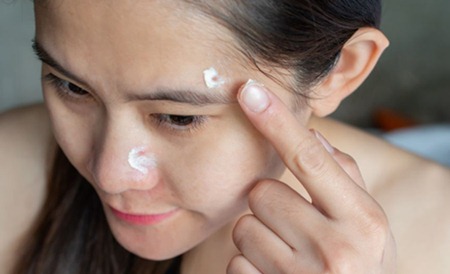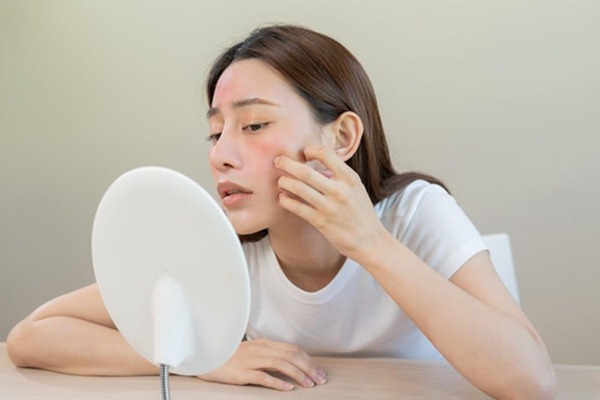When it comes to maintaining clear, healthy skin and treating acne, benzoyl peroxide has been a go-to ingredient for many years. This powerful compound has gained immense popularity due to its ability to effectively fight off acne-causing bacteria and unclog pores. In this article, we will explore the science behind benzoyl peroxide and its key role in pore clearance.
Understanding Pores and Acne Formation
Pores are very small openings on the skin’s surface through which natural skin oil (sebum ) and sweat are released. However, when pores become clogged with dead skin cells, excess oil, and bacteria, acne can develop. This results in the formation of inflammatory pimples, blackheads, and whiteheads. Addressing clogged pores is a very important step in any acne treatment regimen.
Does Benzoyl Peroxide Unclog Pores? The Mechanism of Benzoyl Peroxide

Yes, benzoyl peroxide can help unclog pores by reducing bacteria and exfoliating the skin, aiding in treating breakouts and acne.
Benzoyl peroxide is an organic compound with potent keratolytic (exfoliating) and antimicrobial properties. It is available in various formulations, including washes, gels, and creams. When applied to the skin, benzoyl peroxide works in various ways to prevent acne and unclog pores:
- Exfoliation: Benzoyl peroxide helps to remove the layer of dead skin cells on the skin surface. This exfoliation action prevents these dead skin cells from accumulating in the pores, reducing the risk of clogging.
- Antibacterial Action: Acne is frequently exacerbated by the presence of Propionibacterium acnes, a bacterium that thrives in the clogged pores. Benzoyl peroxide releases oxygen molecules upon application, making an oxygen-rich environment that is toxic to these bacteria. This action minimize their population, leading to a decrease in the formation of new pimples and inflammation.
- Comedolytic Properties: Benzoyl peroxide can penetrate the pores and hair follicles, breaking down clogged pores (comedones) and preventing their development. By dissolving the debris and oily plugs within the pores, it helps to prevent the formation of whiteheads and blackheads.
Effectiveness and Proper Use

Benzoyl peroxide is quite effective for treating mild to moderate acne. It can be used in combination with other acne-fighting ingredients like topical antibiotics or salicylic acid or as a standalone treatment. However, it’s essential to use benzoyl peroxide correctly to achieve the best results:
- Start Slowly: If you are using benzoyl peroxide for the first time, start with a lower concentration (2.5% or 5%) to reduce the risk of skin irritation. Gradually increase the concentration if your skin tolerates it well.
- Cleanse and Dry Skin: Before applying benzoyl peroxide, cleanse your skin with a non-comedogenic, mild cleanser and pat it dry.
- Apply Sparingly: A pea-sized amount is generally enough to cover the affected area. Applying too much can cause irritation and excessive dryness.
- Sun Protection: Benzoyl peroxide can make your skin more sensitive to the sun, because of that, always use a broad-spectrum sunscreen when using this treatment.
- Avoid Sensitive Areas: Be carefull when using benzoyl peroxide near the mouth, eyes, and mucous membranes, as it can cause irritation.
Potential Side Effects
Especially during the initial stages of use, some users may experience side effects. These can include peeling, dryness, redness, and a mild stinging sensation. These side effects are mostly temporary and can be minimized by starting with a lower concentration and gradually increasing usage.
FAQs
How does benzoyl peroxide work for unclogging pores?
Benzoyl Peroxide works by releasing oxygen in the pores. This helps to kill acne-causing bacteria. It also helps to exfoliate the top layer of skin, removing dead cells and unclogging pores. This dual action prevents bacterial growth, reduces inflammation, and promotes clearer skin.
Can benzoyl peroxide reduce the appearance of enlarged pores?
Benzoyl peroxide primarily targets bacteria and acne, so while it might indirectly enhance the appearance of enlarged pores by preventing breakouts and bacteria, its main focus is not particularly on reducing pore size.
Is benzoyl peroxide safe for sensitive skin when targeting pores?
Benzoyl peroxide can be harsh on sensitive skin, potentially causing dryness, redness, and irritation. It’s advisable to conduct a patch test and use a lower concentration. Discontinue use, if irritation occurs. Consulting a dermatologist is recommended for tailored guidance on using it for pore-related issues on sensitive skin.
Does benzoyl peroxide shrink pores?
Benzoyl peroxide primarily addresses acne and bacteria; any pore size reduction, rather than direct pore-shrinking effects, might be due to clearer skin and decreased inflammation.
Does benzoyl peroxide make pores larger?
No, it doesn’t typically make pores larger. Benzoyl peroxide may cause temporary irritation or redness, but it’s not known to directly enlarge pores.
Does benzoyl peroxide keep pores clean?
Yes, benzoyl peroxide helps keep pores clean by killing acne-causing bacteria and exfoliating dead skin cells, which can contribute to reduced clogging and clearer skin.
Which is better for clogged pores salicylic acid or benzoyl peroxide?
Salicylic acid works better for clogged pores due to its ability to exfoliate inside the pores, dissolving dead skin cells and oil. Benzoyl peroxide primarily targets inflammation and bacteria. Choosing between the two depends on concerns and skin type, with benzoyl peroxide for inflammatory acne and salicylic acid favored for blackheads.
In conclusion, benzoyl peroxide is a powerful tool for treating acne and unclogging pores. Its dual action of eliminating acne-causing bacteria and exfoliating makes it a staple in many skincare routines. Remember that people response to skincare products vary, so it’s essential to consult a dermatologist before adding any new product or benzoyl peroxide into your routine. With guidance and proper use, benzoyl peroxide can contribute to healthier, clearer skin.


